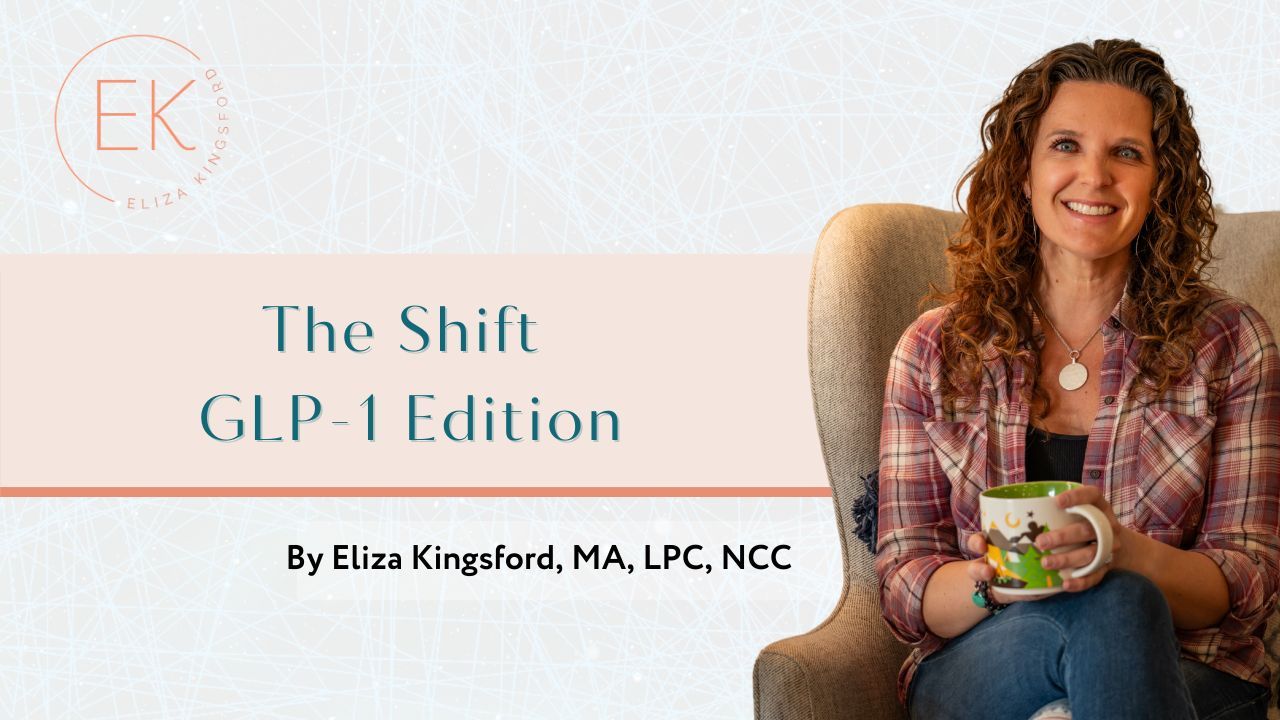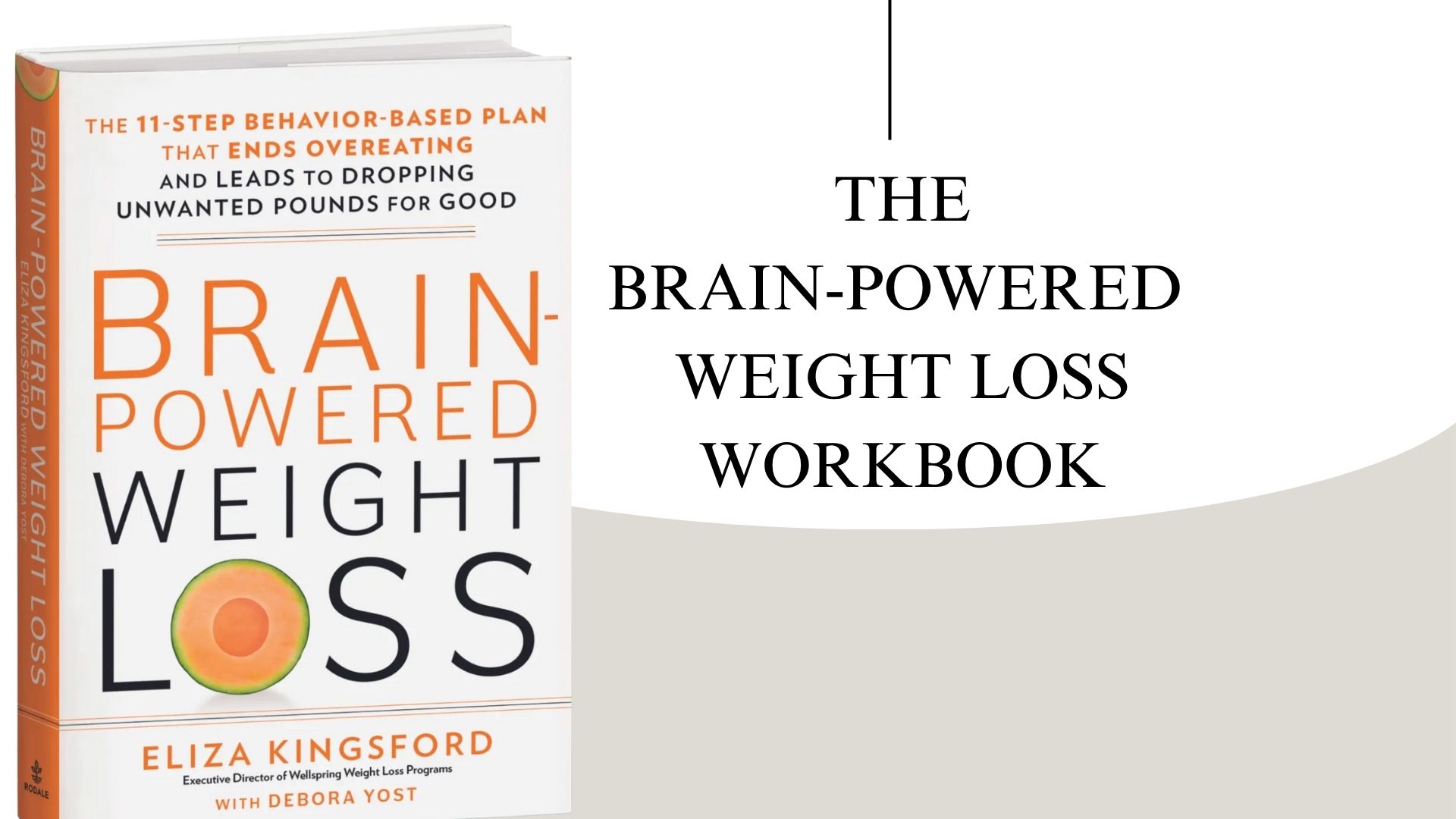
Why Eliminating Food Noise Isn't the Goal—And What You Should Focus on Instead
Jun 05, 2025By Eliza Kingsford
There’s a term that has been gaining popularity lately, food noise. It makes me chuckle, just a little because it’s being thrown around like it’s some new phenomenon, “wow, the GLP-1’s really silenced my food noise” - but food noise isn’t new. Furthermore? It’s completely NORMAL.
Let’s get into it…..
What Exactly Is Food Noise?
If you're new to this term, don't worry—you're not alone. Although I've been talking about food noise with my clients for over 20 years, it's recently entered more mainstream conversations thanks to the rise of GLP-1 weight loss medications.
Doctors and healthcare providers prescribing GLP-1s often discuss "food noise" with patients, making the term more popular outside of a therapeutic setting. But make no mistake: this isn't a brand-new phenomenon. It's just getting more airtime now.
So, what is food noise?
In simple terms, food noise refers to the persistent and pervasive thoughts about food that occupy our minds.
Is it a clinical term? Not officially. You won’t find "food noise" in the DSM or any medical dictionary. It's a descriptive phrase we use to talk about how much mental real estate food can take up.
But here's where things get interesting...
The Big Misconception About Food Noise
During a recent coaching call in The Shift, several of our shifters shared how much freer they feel around food these days. No more draining inner dialogues about what they "can" or "can't" eat. No more fighting with themselves about whether they “should” or “shouldn’t” have another serving.
Yet, one participant brought up an important point:
"I still think about food a lot. I guess I thought that thinner people don’t think about food."
And there lies the single biggest misconception about food noise.
Thinking about food is normal.
In fact, it's biologically necessary.
Our brains evolved over millions of years to be hyper-attuned to food. Why? Because finding and securing food was key to survival.
There's even a scientific term for this: Optimal Foraging Theory. Our brains are wired to seek out food efficiently—seeking foods that would sustain us with energy and nutrients, often foods that are highest in caloric and energy density!
If we weren’t wired to think about food, humanity wouldn't have survived.
So no, the goal isn’t to eliminate food thoughts. That would be fighting our evolutionary biology.
The real goal is something much more empowering.
Good vs. Bad Food Noise
Here’s the distinction I shared during our call—and it was a major "aha moment" for many.
There is a difference between food noise and detrimental food noise.
🔵 Normal, healthy food thoughts sound something like:
- "When is my next meal?"
- "What should I make for dinner?"
- "Do I have what I need to eat my next meal? Is a grocery store trip in order?"
These thoughts are neutral. They’re part of daily living, much like thinking about filling your gas tank or planning your to-do list. If you’re like me, filling my gas tank is annoying. I don’t LOVE it, but it’s a necessity if I want to drive my car! Similarly, food noise can still be annoying, anyone else HATE the dreaded question, “what are we doing for dinner”? But that still doesn’t mean it’s detrimental.
🔴 Detrimental food noise sounds like:
- "I want Chick-fil-A. I shouldn’t, I’m on a diet. But I really want it. No, I can’t. But maybe just this once. Ok but only half the fries. But I want more fries. No you can’t have anymore…..see I knew you’d eat the whole thing. Why do you always do that?"
- Constant guilt, negotiations, and mental battles around food choices.
Detrimental food noise is exhausting. It feels like a never-ending tug-of-war inside your brain—and it drains your energy, willpower, and emotional reserves.
But this type of food noise? The detrimental kind? That’s FIXABLE!!!
And that’s the distinction not being made when I hear talk about eliminating food noise.
This type of food noise is not about survival.
It's an emotional and mental struggle that derived somewhere first, became habituated in the brain, and can be rewired.
And here's the key:
We are not trying to eliminate all food noise—we're working to eliminate the detrimental, draining, mentally exhausting kind.
Using GLP-1’s to eliminate food noise is like using a blowtorch to blow out a candle. Sure, you’re going to blow the candle out! But you’re also going to burn everything around it as well.
Why GLP-1 Medications Are Changing the Conversation
One reason food noise is being talked about more lately is because many people taking GLP-1 medications (like Wegovy or Ozempic) report a dramatic reduction—or even absence—of appetite.
Suddenly, food doesn’t dominate their thoughts anymore.
For many, that feels like freedom.
But here's the catch:
Eliminating all food noise through appetite suppression and removing the hedonic effects of food, might not necessarily be a good thing.
You’re throwing the baby out with the bathwater.
Taking away all food thoughts shouldn’t be the goal. In fact, having no orientation toward eating can lead to new challenges—like under-eating, nutrient deficiencies, or disconnection from your body's needs.
Instead of erasing food thoughts altogether, we should focus on transforming the relationship we have with those thoughts.
Food Noise Is a Symptom—Not the Root Cause
One of the most important lessons I teach is this:
If we want lasting, sustainable healing, then we need to stop treating symptoms only.
- Your weight is a symptom.
- Your food noise is a symptom.
- Feeling out of control around food is a symptom.
And just throwing another medication at the symptom is like playing a game of whack-a-mole. Sure, you might achieve remarkable weight loss! But that mole is going to pop up somewhere else, because the nervous system is MUCH stronger than we give it credit for.
If we only focus on treating the symptom (like food noise), we never address what's causing the symptom to begin with.
That’s why in our work together, we'll go deeper.
We'll uncover what's beneath the food noise—and that's where true transformation happens.
Living at a Healthy Weight Still Involves Thinking About Food
Another huge myth I want to bust?
That once you hit your happy, healthy weight, you’ll don’t have to think about food anymore!
Not true.
Millions of healthy, thriving people think about food every day. In fact, I’ll argue they think about it A LOT. It takes planning, preparation, forethought, flexibility and resilience to be healthy in our obesogenic culture.
Healthy people are considering their food choices every meal. Every single day.
They just aren't fighting with their food thoughts.
It’s not a war anymore. It’s simply:
- "What’s for dinner tonight?"
- "Do I have enough groceries for tomorrow?"
- "Oops, headed out for dinner unexpectedly. What on this menu will support my needs or goals?"
Thinking about food becomes as neutral as thinking about brushing your teeth, putting gas in your car, or remembering your kid’s soccer practice.
It’s just part of life. It can even be a little annoying (like stopping to put gas in your car, or evaluating the soccer schedule for the 100th time), but you just know it’s an inevitable part of living your healthiest and happiest life.
If you're experiencing food noise, you're not broken.
You're not doing it wrong.
And you definitely don't need to "erase" food from your brain to live at a healthy weight.
What we do need to do is transform the detrimental, energy-draining type of food noise—and that’s exactly what I’ll teach you how to do inside my programs.
What’s Next
If this message resonates, if you’ve realized your weight struggle runs deeper than diets—it’s time to heal what’s really underneath. I want to personally invite you to watch the Master Your Weight Loss Workshop for yourself - free!
This isn’t another plan. It’s a shift in identity. And for thousands of women, it’s the beginning of freedom.
👉 You can watch by clicking this link here
🎧 Want More Like This?
If you're ready to go deeper into behavior change, emotional regulation, and sustainable weight loss, don’t miss The Brain Powered Weight Loss Podcast, hosted by me - Eliza Kingsford.
Each episode breaks down the neuroscience behind food patterns, cravings, and mindset shifts — so you can finally understand why you get stuck, and what to do about it.
Click here to start listening now
💬 Let’s Keep the Conversation Going
If something in this post resonated with you, you're not alone — and you don’t have to figure it out alone either.
As a licensed psychotherapist, behavior change specialist, and expert in the neuroscience of lasting transformation. I've helped thousands of people, regulate their nervous systems, and finally gain control over food and their bodies — not through willpower, but through proven, science-backed methods - offering a path to sustainable change that actually works - not just for your body, but for your whole self.
👉 Ready for deeper support? I welcome hearing from you. Send me an email: [email protected].
And if you're looking for a safe place to heal your relationship with food, body, and self — you're in the right place. I'm so glad you’re here.


